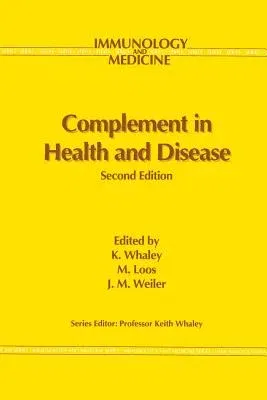Complement in Health and Disease (1993. Softcover Reprint of the Original 2nd 1993)Paperback - 1993. Softcover Reprint of the Original 2nd 1993, 29 October 2012

Qty
1
Turbo
Ships in 2 - 3 days
In Stock
Free Delivery
Cash on Delivery
15 Days
Free Returns
Secure Checkout
Part of Series
Immunology and Medicine
Print Length
383 pages
Language
English
Publisher
Springer
Date Published
29 Oct 2012
ISBN-10
9401049815
ISBN-13
9789401049818
Description
Product Details
Book Edition:
1993. Softcover Reprint of the Original 2nd 1993
Book Format:
Paperback
Country of Origin:
NL
Date Published:
29 October 2012
Dimensions:
23.39 x
15.6 x
2.06 cm
ISBN-10:
9401049815
ISBN-13:
9789401049818
Language:
English
Location:
Dordrecht
Pages:
383
Publisher:
Series:
Weight:
553.38 gm

